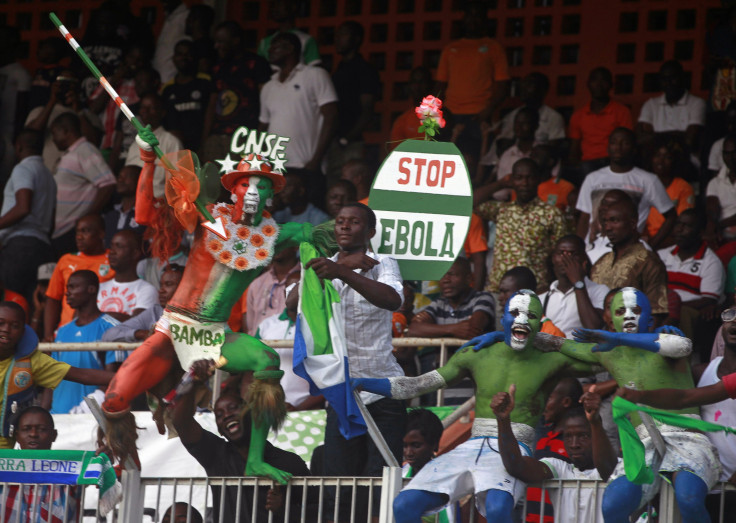African Cup Of Nations: Morocco Withdraws Amid Ebola Fears; Nigeria, Angola And Gabon Tentatively Step Forward

Morocco’s sudden decision to withdraw from hosting the biennial African Cup of Nations tournament next January because of fears over Ebola has left the continent without a host. With only three months before the competition is due to begin, a frantic search for a new host is on. Morocco made the decision on Tuesday, citing fears that traveling fans from West Africa could bring Ebola into the country.
“This decision is motivated mainly by the medical risks that would put this virus on the health of our fellow Africans,” Mohamed Ouzzine, Morocco’s sports minister, said in a statement last weekend.
But none of the three most-affected West African countries have qualified so far for the tournament.
Liberia, where most cases of Ebola have been confirmed, exited in the preliminary qualifiers. Sierra Leone sits bottom of its group with a single point, meaning qualification for the tournament is very unlikely. Guinea, despite also being bottom of its group, has four points and favorable upcoming fixtures away to Togo and home to Uganda.
The only country that has qualified and had an Ebola outbreak is Nigeria, but the World Health Organization declared it clear of the virus in October.
For this imminent 2015 edition of the tournament, only a handful of countries could realistically host, if they even wanted to. The major soccer nations of Ghana, South Africa and Egypt, which all have the infrastructure and economic clout to stage the tournament, do not want to, either citing security fears or concerns over Ebola spreading, according to a report by the Associated Press. This leaves the door open to Nigeria, which has said it’s interested in hosting in January. However, having recently been given the all-clear on Ebola, it’s yet to be seen whether it will risk the possibility of bringing the virus back to the country. Not to mention security fears over Islamist terror group Boko Haram.
Angola and Gabon, which hosted in 2010 and 2012, respectively, have said they might be interested in hosting again, as they still have the infrastructure to stage the event.
French newspaper L’Equipe has even mentioned that Qatar might be asked to host, making it the first time the competition will leave the continent, and offer the Gulf emirate the chance to prove itself ahead of hosting the World Cup in 2022.
The Confederation of African Football (CAF), the governing body of African football, accused Morocco of being alarmist after it tried to delay the competition by six months to a year. However, a large percentage of the participating players would have struggled to be released from their French-based soccer clubs, which only sanction the players to be released between Jan. 17 and Feb. 8, 2014, meaning the tournament would have been staged without the best players, who are signed to French teams.
CAF President Issa Hayatou made his feelings clear in a press conference Tuesday.
“Once you postpone this event, it will open the door for everybody to ask for a delay of any competition, and we will no longer be credible and cannot organize anything,” said Hayatou. “Of course, they said the reason was Ebola. But when we see also that Morocco is in the process of organizing the FIFA Club World Cup, only 25 days before the Africa Cup of Nations, you understand that this is an argument that must be quickly erased,” Hayatou added.
The alternative option available to the CAF is to cancel the competition completely, which a member of the CAF board said would not be possible.
“The financial damage and the consequences for CAF and its marketing partners would be too severe to call it off,” Constant Omari, president of the soccer federation of the Democratic Republic of Congo and a member of the CAF’s executive committee, told French radio.
It’s not the first time the competition has been rescheduled. Libya was due to host the tournament in 2017, but ongoing security concerns have meant that a new host will have to be found. South Africa has tentatively said it will host.
However, it’s likely CAF will favor Nigeria, given the large population and popularity of soccer in the country, as it attempts to avoid embarrassing scenes like those from the 2012 edition of the tournament, in Gabon, where attendance was way too low: Only 2,000 people turned up to see Ivory Coast play Togo, an exceptionally low figure for such a fixture in such an important tournament.
Hayatou has said that the new host will be named in the coming two to three days.
© Copyright IBTimes 2025. All rights reserved.






















